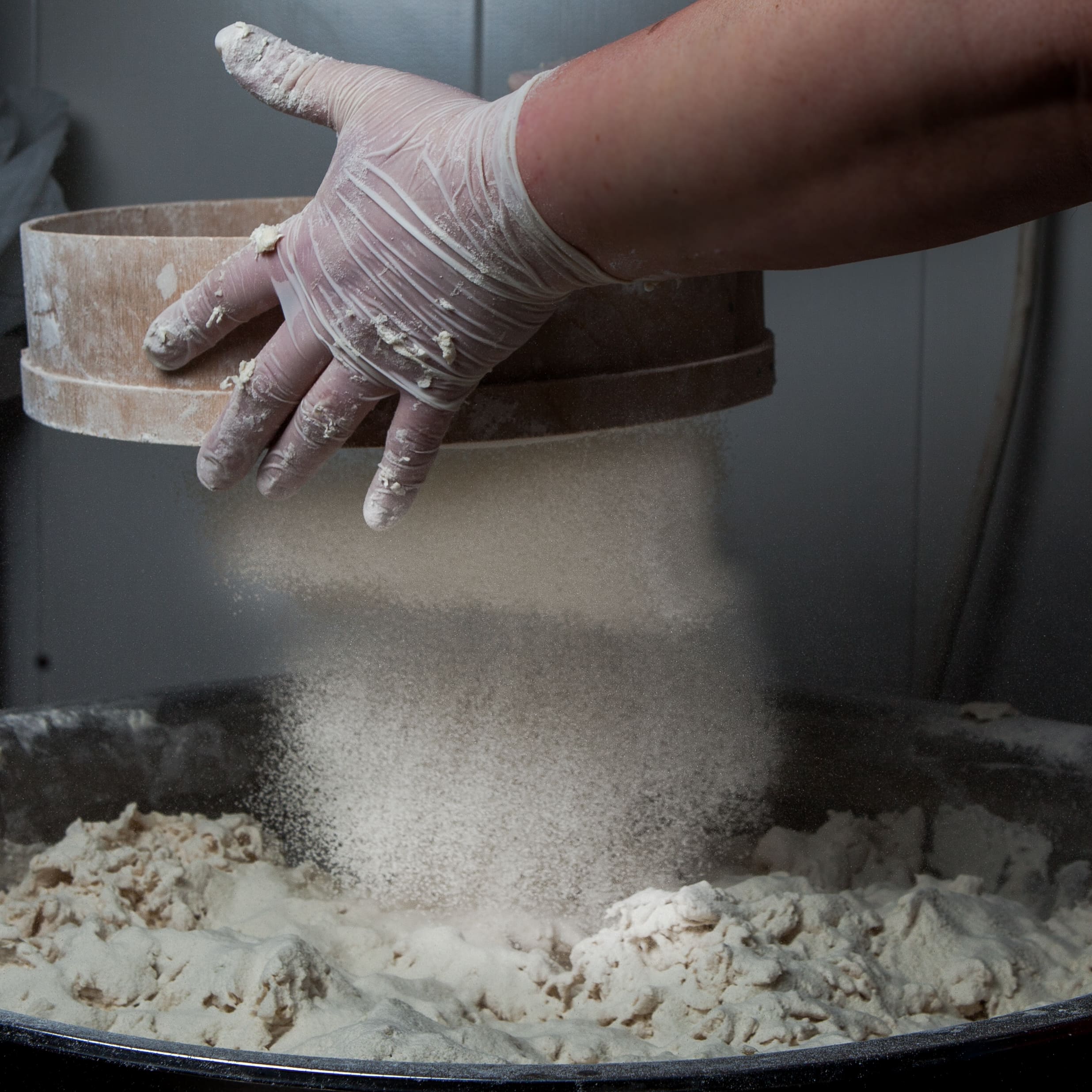INSOSTPACK: waste that feeds the future
- Nacional
- Producción sostenible

INSOSTPACK is an ambitious R&D project subsidized by the CDTI (Center for the Development of Industrial Technology) and supported by the Ministry of Science, Innovation, and Universities, which is researching a pioneering circular economy model for the food industry. Its proposal is as innovative as it is sustainable: transform food excess and waste into protein, oil, and chitin through the automated breeding of insects in smart containers.
A revolutionary focus that will allow the same companies that generate the waste — such as supermarkets, group dining halls, or food transformers — to reconvert it into new food products or compostable packaging, reducing waste and closing the value circle.
The current food production model usually follows a linear logic: use and throw away. With INSOSTPACK, we are researching a circular and efficient alternative that provides a solution to one of the sector’s greatest challenges: getting value out of what is currently waste. Thanks to the potential of the black solider fly, which is capable of eating practically any organic waste, and a smart and automated breeding system, INSOSTPACK will allow for sub-products with large added value to be reincorporated into the food cycle, such as:
- Sustainable protein, for human and animal food.
- Insect oil, as an ingredient or raw material for bioplastics.
- Chitin, a versatile bio-polymer for creating plastic-free, biodegradable, and compostable packaging.
The INSOSTPACK project’s goal is to develop an innovative technological solution for the automated breeding of insects from food waste and excess, by using a smart container adapted to non-specialized environments. Research will be carried out on how the breeding conditions and diet influence larva growth and the quality of the bio-products that are obtained: protein, oil, and chitin. At the same time, advances will be made in sustainable techniques to decompose and thus extract these compounds with low energy consumption. Moreover, its application in biodegradable and compostable packaging, as well as the creating of animal feed, will be explored, thereby promoting a real and circular alternative to the current food production model.
INSOSTPACK is structured in six research phases that span from the design of the automated container to validation in a laboratory setting. This collaborative project is led by EROSKI alongside such innovative companies as PROMIC, INSECTIUS, KAAM, BZERO and AUSOLAN, and with the scientific support of TECNALIA and AIMPLAS.
The expected impact of the INSOSTPACK is widespread and transformational, not only environmentally, but also economically, socially, and technologically. By developing an innovative solution for creating value from food waste through the automated breeding of insects, a significant reduction will be made in food waste at its origin, that is, at the supermarkets and dining halls that generate the waste. This will mean an improvement in the efficiency of the food system and a reduction in the volume of waste that needs to be transported and managed, which will thus mean a lower carbon footprint. Furthermore, the project will allow for new ingredients and materials with high added value to be obtained from sub-products that are currently not taken advantage of, such as the protein, oil, and chitin extracted from the insects. These compounds can be reincorporated into the food industry, either as ingredients for food or for the manufacture of more sustainable packaging. This new production method promotes lesser dependence on traditional resources and fossil fuels, paving the way for biodegradable and compostable alternatives that improve the sustainability of the food chain.
From the technological point of view, INSOSTPACK will encourage the development of smart systems for breeding and processing, with low energy consumption and supported by artificial intelligence, which will be a notable breakthrough in the automation and sustainability of the sector. Socially, the project will also create jobs in emerging green sectors, strengthening the local circular economy and favoring a more resilient and responsible development model. All of this will be consolidated into a more sustainable and committed vision of the future for food.
INSOSTPACK is aligned with EROSKI’s Sustainability Commitments, especially with the commitment to promote the circular economy and reduce the use of polluting packaging. It is part of our contribution to Mission 8 of the CDTI Missions program, focused on efficient and sustainable processing and packaging for safe, high-quality food.


